- Home
- Helen Forrester
Twopence to Cross the Mersey Page 9
Twopence to Cross the Mersey Read online
Page 9
He listened patiently, occasionally interjecting a question or nodding understandingly.
Finally I trailed to a hopeless stop.
He sat silent for a while, contemplating the lake, his book still open on his knee, his face full of the sad resignation of the very old.
At last, he sighed and said, ‘You know, child, it is not what happens to you that matters – it is how you deal with it.’
This was a new idea to me and I pondered on it, as I shyly watched his face.
‘You can read?’
‘Yes.’
‘You go to the library?’
‘Yes.’
‘Then read! Read everything you can. Read the great historians, the philosophers, especially the German ones, read autobiographies, read novels. One day, you will have the opportunity to make use of the knowledge you will accumulate, and you will be surprised to find that you know much more than those who have had a more formal education.’
He closed his book and put it in his pocket, and then said quite cheerfully, ‘Your day will come, child. Your parents are having a difficult time at present and cannot help you.’
He got up from his seat slowly and stiffly and then bowed politely to me.
‘I come here every sunny afternoon to commune with nature. Come one day and tell me what you have read.’
The faintness which had threatened me before was making his face dim to me, but I thanked him warmly and promised that I would come. I felt wonderfully comforted.
I sat down again after he had left, to allow my faintness to recede. Then I called Avril and hastened out of the rose garden before the keeper could find us without a guardian.
The way home seemed infinitely long and the momentary peace engendered by the conversation with the old man gradually left me, to be replaced with memories of Dickens’s descriptions of workhouses.
CHAPTER SIXTEEN
When I arrived home, Alan and Fiona were sitting on the bottom step of the imposing flight of steps which led up to the front door of Mrs Foster’s house. The evening was drawing on and the lamplighter was going on his rounds, pulling on the gas lights with his long rod as he paused, wobbling on his bicycle, at each lamp-post.
Alan was talking cheerfully to Fiona, who looked white and woebegone, her blue eyes wide and her china-doll features crumpled with fear.
‘What’s the matter?’ I asked in some alarm, as I stopped the Chariot beside them.
Alan peered up at me through his tousled mop of yellow hair.
‘Fiona’s scared, and I’m telling her that there is nothing to be scared about,’ he said stoutly.
Trying not to show that I was frightened, I lifted Avril out of the Chariot with elaborate casualness and clucked encouragingly at Edward, who smiled at me angelically.
I sat down beside Alan.
‘What is the matter?’
Fiona answered through trembling lips.
‘Mrs Foster is shouting at Mother, and Mother is shouting at Father – and – and it’s an awful noise.
‘And I want to go home to Nanny!’ And she began to cry.
‘Be quiet!’ I snapped at her, and she was immediately reduced to cowed silence.
I turned to Alan.
‘Has Mr Ferris complained?’
Alan looked puzzled.
‘Mr Ferris? You mean about the noise we make?’
‘Yes.’
‘Oh no.’ Alan chuckled suddenly and began to play an imaginary piano with gusto. ‘He makes too much noise himself. He just shouts at us because it makes him feel better.’ He tossed back his hair, exactly as Mr Ferris did, and finished his piano piece with a mighty boom on the bottom notes, ‘Boom-tiddly-boom – boo-om – boom!’
I wished that I had Alan’s cool common sense. In one sentence he had calmed my fears. But not Fiona’s apparently. Tears were running down her cheeks like raindrops.
‘What has happened, then?’
Alan sobered.
‘Daddy didn’t pay the rent. He spent the money on cigarettes, and Mrs Foster is as cross as two sticks. And Mother is crossest of all, because she helped to smoke the cigarettes without thinking of where they came from. And – well, you know Mother.’
I did know Mother. Even in her most halcyon days, her temper had been something to avoid at all costs. Now, sick, bewildered, hungry and despairing, her bouts of temper bordered on insanity. She was terrifying in her rages, more terrifying in her subsequent withdrawn silences.
I licked my lips and voiced my dread in a whisper, so as not to frighten Avril, who was sitting on the pavement playing with two matchsticks and a piece of orange-peel. Alan and Fiona bent their heads close to mine.
‘Do you think she’ll turn us out into the street – Mrs Foster, I mean?’
‘No idea,’ replied Alan phlegmatically. ‘Fiona and I just opened the door when we came back from school, and understood what the trouble was inside a minute. So we just left them to it – and came down here.’
‘Where are Brian and Tony?’
Alan sighed. ‘They bounced right into the room. Now they’ll be expected to take sides – and Brian will have nightmares – and probably be sick after tea.’
I nodded silent agreement. Poor Brian, sensitive to every nuance of every word spoken to him, would be reduced to incoherence by such an episode.
‘Have we got bread for tea?’ asked Fiona.
‘A little,’ I said.
‘Shall we ever have butter again?’
‘Of course,’ said Alan.
Avril toddled up to us.
‘I like jam as well as butter,’ she announced. ‘I want jam for tea.’
I suppressed an irrational desire to slap Avril, and we sat quietly watching seamen crowding into the hall of a house opposite to ours. In this house lived an assortment of middle-aged women, who were a great mystery to me. They were much better dressed than their neighbours, though they never seemed to go out to work. And they had lots of visitors – all men.
I watched the rolling gait of the men lounging up the steps. Many of them were already drunk. They shouted raucously to each other and laughed at remarks of which I did not get the import.
One of the single ladies who lived on the same floor as Mrs Foster, came down our steps and paused by us. She looked across the road and then regarded us uneasily.
‘Dawn’t yer think ye’d better go in, luv?’ she asked.
I looked up at her dully. She seemed magnificent to me with her veiled, flowered hat and flashing diamanté earrings. Her silver evening shoes and rayon stockings were close to me, however, and she did not smell very nice.
Uneasily, I turned my head away.
‘We can’t,’ I said.
‘Daddy and Mummy are cross,’ announced Avril, rising from the pavement and dusting down her little backside.
The lady bit her scarlet lower lip, as she considered this, and then said in confidential tones to me, ‘Eee, luv, ah think you had better get inside. Over there is going to be ruddy noisy – and rough to the likes o’ you. There’s four ships in.’
Though none of us knew what she meant, we rose reluctantly and Alan helped me pull the Chariot up the steps.
I appreciated that she had tried to be kind to us, and I thanked her, as she started to walk with swaying hips to the bus stop at the corner.
‘That’s all right, luv,’ she said cheerfully, and she hitched her mangy fox fur up round her chin and called to Avril, ‘Now, run along, luv.’
‘She’s pretty kind, isn’t she?’ I remarked to Alan, as we jointly heaved the Chariot up the stairs to the top of the house, from whence the sounds of battle still proceeded.
‘Yes,’ said Alan. But he did not sound convinced, though he added, ‘She gave me a sweet the other day.’
Just as we were about to tackle the last flight of stairs, we heard Mrs Foster’s heavy tread coming down. We cringed together on the landing as, without a word, she passed us, her black georgette draperies floating around her. Behind her sh
e left a mixed odour of cats and birds.
Dead silence greeted us as we entered our room. My parents occupied the two kitchen chairs which the room boasted. Their mouths were clamped shut, and only my mother’s fast breathing told of the earlier strife. Brian was biting his nails feverishly, as he stood watching them. Tony was calmly playing with a pebble on the table, pretending it was a train: he muttered ‘chuff-chuff-chuff’ to himself as he ran it into a station. He looked up as we entered, his large intelligent eyes sad with a sadness unnatural in one so young.
‘Hello, Helen,’ he said, his voice sounding loud in the prevailing quietness. ‘What about some tea – it’s late.’
I did not know what to do about my parents, so I ignored them and answered him.
‘Yes, dear. Just let me unload.’
From around Edward’s feet in the pram, I exhumed a mass of small pieces of rubbish, which I had gleaned during my walk, and laid them in the hearth. There were empty match-boxes, cigarette cartons – which did not usually burn very well – bits of stick, twigs and paper of every description, and a whole tattered copy of the Liverpool Echo.
I raked through the cold ashes in the grate and salvaged a few cinders. Would I have enough fuel to boil some water, I wondered anxiously.
Alan kindly volunteered to run down to the bathroom and fetch a pan of water, and Fiona, without being asked, took Edward on her knee. She gasped as his wet napkin damped her gym slip and bare legs, but she did not complain. And all the time my parents sat in silence, almost prostrated by their quarrels.
It was nearly dark by the time the water was persuaded to boil and the tea was made. I cut a dry, white loaf into eight pieces of roughly equal size, and gave each of my parents a piece of it with a cup of the smoky tea, which had, of course, no milk or sugar in it. I gave a little tea to each child in whatever receptacles I could muster, with a piece of bread.
‘Can I dip?’ asked Tony. ‘The crust is too hard to bite.’
I looked at my mother, who ignored the question and stared moodily into her teacup.
My father picked up his cup, and said suddenly, ‘You may.’
Thankfully, Tony and Brian plunged their bread into their tea.
‘The bread is so stale it’s second-hand,’ remarked Tony.
Brian giggled and snorted helplessly into his jam-jar of tea. ‘I’ve got a second-hand teacup to match,’ he gurgled, a note of hysteria in his voice.
‘I want some jam,’ shouted Avril.
‘Be quiet, Avril,’ said Fiona, who had given a little of her bread to Edward to suck on. ‘You know there is no jam.’
‘Not even any second-hand jam?’ the younger girl demanded with mock indignation.
My father began to laugh, at first a small wry chuckle in his throat and, then, gaining momentum, one of his old hearty laughs. I joined in, and soon the whole family was laughing hysterically, the noise pealing along the cobwebbed ceiling and down the stairs to the floor below, where the other tenants, hearing us, must have believed us to be mad.
Only Mother, wrapped in pain, fatigue and semi-starvation, sat silently staring at her cup of tea, her piece of bread in her hand.
CHAPTER SEVENTEEN
We crept through the spring and summer, cursing wet days, rejoicing in warm, dry ones, ignoring petty ailments and hunger, since we could do nothing about either.
Several of the children had sores which took a long time to heal. These were sometimes caused by normal cuts and abrasions, acquired while playing, going septic; and sometimes from their scratching at their vermin-ridden bodies. We nearly all suffered from toothache from time to time, and Mother’s teeth began to loosen. Brian suffered torture from gumboils. His first teeth had been good but he had several large cavities in his second ones, caused, perhaps, by the large amount of white bread in his diet. His wizened face would swell up and he would cry hour after hour, until finally the abscess would burst and the pain would be reduced. On one occasion his weeping was heard as far away as the basement of the house; and Mrs Hicks, prodded by her out-of-work, bricklayer husband, made the long journey up the stairs, to inquire what was the matter.
‘He’s got a bad tooth,’ I explained. ‘He can’t go to school today, because it hurts too much.’
‘Well, poor luv!’ she exclaimed, her double chin, with its little crown of spiky hairs, wobbling sympathetically. ‘Na, then, I got some oil of cloves. Come daanstairs with me, luv,’ she called to Brian, who was hovering nervously in the background. ‘Ah got somethin’ as will help yer. Come on, na.’
Brian allowed himself to be beguiled downstairs, where he spent the afternoon lying on Mrs Hicks’s horsehair sofa in front of her blazing fire, having hot cloths put on his cheeks and quantities of bitter oil of cloves dabbed into his cavities.
Nobody had ever made such a fuss of him, and, despite the pain and the foul taste of oil of cloves, he loved it. He loved also the warmth, the cosiness and the old tin teapot keeping its contents warm on the hob.
Mr Hicks called him a brave lad, and, when he was feeling better, and was ready to return to our cold, clammy apartment, Mrs Hicks invited him to come down again on a day when his teeth were not hurting, and have a cup of tea and a homemade scone with them.
He came back full of glee, in spite of his swollen face, and remained Mr and Mrs Hicks’s devoted friend and message-runner for years.
The Hickses had so little, and yet they managed to make their dark basement so cosy. Mrs Hicks must have been an excellent housekeeper and, unlike many of her neighbours, she understood the nutritional value of many cheap foods like herrings and lentils, and she pointed out to me that brown bread was better than white. My mother, like many middle-class English people at that time, knew very little about the need for a well-balanced diet.
Another good cook was the Spanish lady who had given us the Chariot. I found she had a Spanish husband, who was a warehouseman in one of the fruit warehouses near the Fruit Exchange, and he kept her well supplied with oranges, apples and other delicacies in season. He was, she confided to me as we sat on the steps in the sun, a man of choleric temper and colossal jealousy. But, ah me, what a man!
I smiled sympathetically, and bounced Edward up and down on my knee, to his great delight.
She pulled her black, knitted shawl tightly round her shoulders, and looked at me coquettishly.
‘You not understand yet, I think. But you learn.’
‘I expect so,’ I replied guardedly, not at all sure what I would learn but sensing it would be something interesting.
She cooed in Spanish to Edward.
He could crawl a little now, but he was not a pretty baby. His head, which looked too big, was covered with scurf, and his stomach stuck out grotesquely. His smile, however, was sweet as he responded to the Spanish words.
‘My last boy, Peter, he go to school with your Tony. Say your Tony very clever – can read well and do his arithmetic.’
This was news to me, there being no contact between home and school. My father, eternally busy at being unemployed, had given no consideration to his children’s progress. My mother, after the brimstone and treacle season came to an end, about the end of May, kept trying unsuccessfully for other work, and long walks to see prospective employers took up much of her time. She was now well, in the sense that she had recovered from Edward’s birth and her subsequent major operation, but she was nearly starving and was still walking the razor’s edge between mental health and nervous breakdown. She was a mere wreckage of the lovely woman she had been a short eighteen months previously.
The Spanish lady was speaking again.
‘What your Dadda work at?’
‘He is registered as a bookkeeper-clerk.’
I felt reticent. I did not want to tell our story to anyone who asked, and I parried all further questions.
Frequently, I walked down the avenue to Princes Park and, seated on the sun-warmed bench in the rose garden, had long conversations with the old gentleman who had defended us a
gainst the parkkeeper.
‘I was never rich,’ he once volunteered in his precise English. ‘I have always worked as an interpreter – and I still do sometimes interpret for Arab and Chinese seamen in the magistrate’s court.’
‘Were you born in China, sir?’ I ventured.
‘No. I was born in Lebanon. My father was a German and, as I think I told you once, Mother was an Arab. So I had three languages – German, Arabic and French, which is widely spoken in Lebanon. Father was an engineer by profession and I had the chance to learn Chinese and English while he was working in Singapore, then Spanish in Mexico and Portuguese in Brazil. I taught myself Italian.’ He paused for breath, and then went on, ‘Now I study Greek and Hebrew, so that I can study the Scriptures in more detail.’
I was awed by such a catalogue of learning.
‘You must have been able to live quite comfortably,’ I hazarded.
‘I had sufficient. But, you must know, child, that scholarship does not often bring one money – one can earn, yes – but it is the enrichment of the mind rather than of the pocket which it gives.’ He laughed softly. ‘I was rich in friends, a good wife, three sons …’ His voice broke, and he stopped.
‘Do your boys live with you?’ I inquired, wondering that he had not mentioned them before.
He looked at me absently.
‘My boys – my wonderful boys – all died in the war. My dear wife followed them three years ago. Soon I shall join them.’ He snapped his little book shut as if to show how suddenly he would finish.
I was ashamed at having pried into his affairs. Adult suffering had a way of springing upon one from unexpected sources, and I had yet to learn how heavy a burden the adult world carried at times.
‘I’m truly sorry to have been so impertinent,’ I mumbled.
I hoped passionately that he would not die. He was the only clean, civilized person I knew in Liverpool; and he was as wise as my grandmother, who lived so far away, a whole twopence away, in the Wirral. That my parents were civilized did not occur to me. They always seemed to be so far away from me.

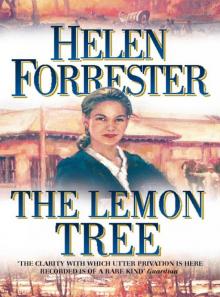 The Lemon Tree
The Lemon Tree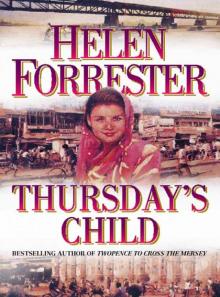 Thursday's Child
Thursday's Child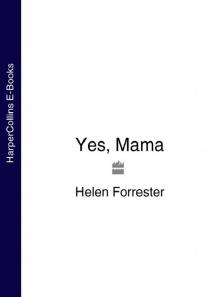 Yes, Mama
Yes, Mama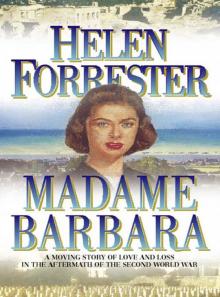 Madame Barbara
Madame Barbara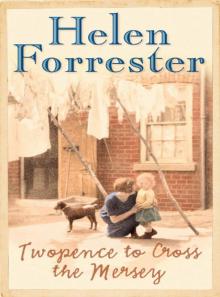 Twopence to Cross the Mersey
Twopence to Cross the Mersey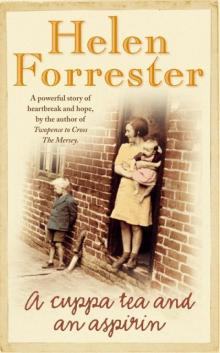 A Cuppa Tea and an Aspirin
A Cuppa Tea and an Aspirin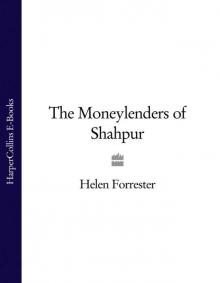 The Moneylenders of Shahpur
The Moneylenders of Shahpur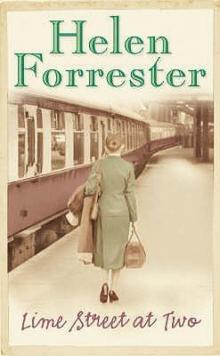 Lime Street at Two
Lime Street at Two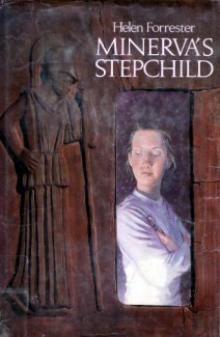 Minerva's Stepchild
Minerva's Stepchild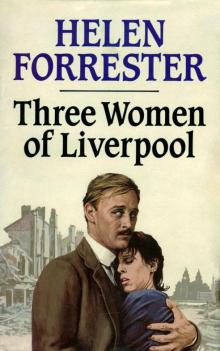 Three Women of Liverpool
Three Women of Liverpool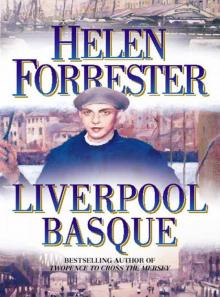 The Liverpool Basque
The Liverpool Basque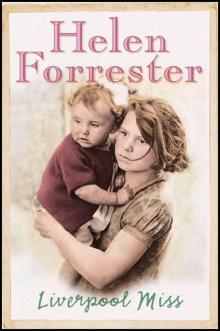 Liverpool Miss
Liverpool Miss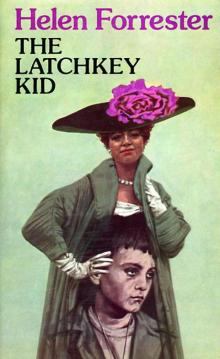 The Latchkey Kid
The Latchkey Kid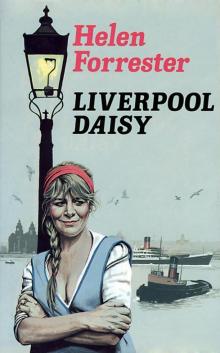 Liverpool Daisy
Liverpool Daisy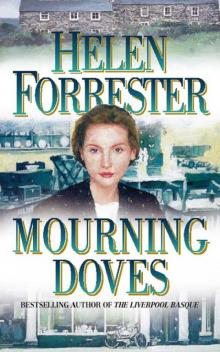 Mourning Doves
Mourning Doves